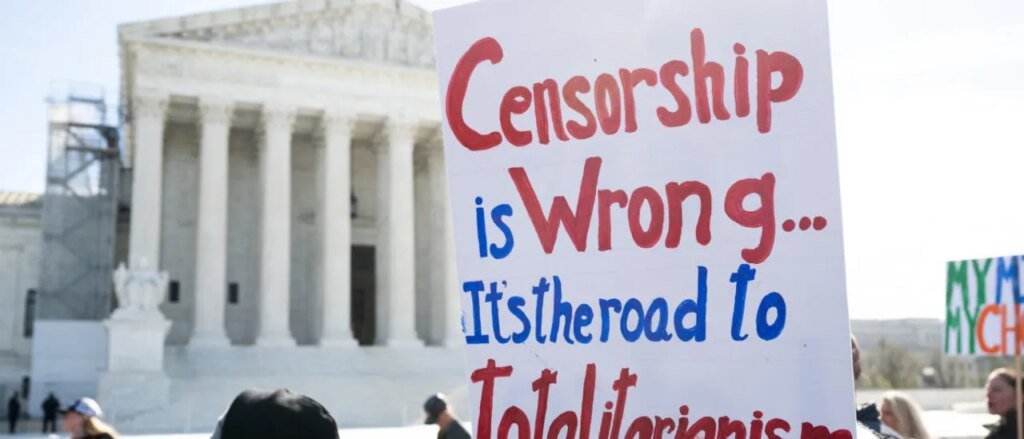There’s finally some positive news regarding free expression. This month, Gale Slater, Roger Alfred, and the remaining Justice Department under President Donald Trump submitted a statement of interest in federal courts that should benefit all Americans. It clearly condemned the Media Big Tech alliance, asserting that this partnership shouldn’t stifle the rights of individuals to express themselves freely.
It’s about time. After years of government exerting pressure, manipulating algorithms, and orchestrating backdoor schemes, Trump’s Justice Department has affirmed that Americans ought to be able to voice their opinions online, even if those views don’t align with powerful figures.
As one of the plaintiffs in this matter, I can speak with some authority. I experienced firsthand the attempt to silence dissenting voices.
During the COVID pandemic, I raised some fundamental questions about the lockdowns, mandates, and the origins of the virus. Consequently, I was banned and censored. Along with others, including those from Children’s Health Defense, founded by Robert F. Kennedy Jr., I participated in a lawsuit that targeted the Trustworthy News Initiative (TNI). Major outlets like the Washington Post, BBC, Reuters, and Associated Press, alongside tech giants like Facebook, Google, and Microsoft, were involved.
The stated mission? Supposedly to combat “false information.” But I think their true aim is to safeguard their own power and the riches of media companies.
The lawsuit notes that Jessica Cecil, the Director of TNI, stated that members “accept” certain “standards” that enable them to cooperate with a “system” that allows the suppression of content they disapprove of.
This means if someone voices an opinion that counters the government’s narrative—whether regarding COVID-19, election integrity, or vaccine mandates—their content may be labeled as dangerous, leading to throttled visibility or being hidden entirely.
Thus, dissenting opinions were effectively silenced, often praised by the Biden administration, contributing to a serious climate of censorship.
Unfortunately, the Biden Justice Department has not come to the defense of free speech.
When they weren’t focused on censoring Americans, they seemed entrenched in politically charged litigation. Remember their case against Visa, claiming the company monopolized debit card transactions while ignoring the growing competition from fintech? It certainly didn’t reflect the realities of the market.
This wasn’t the only troubling case I encountered. The Biden DOJ and the Federal Trade Commission initiated various lawsuits against figures like Donald Trump and Elon Musk, often appearing more about control and manipulation than upholding justice.
The Biden administration seemed less concerned about enforcing laws and more focused on sending a strong message to private sectors.
Yet, there’s a glimmer of hope. The tide may be shifting.
The recent court filing from Trump’s DOJ makes a bold statement: the act of objection is protected speech, especially when it pertains to public interest. There’s a strong belief that attempts to suppress alternative opinions are constitutionally shaky. This courageous filing signifies a break from the long-standing campaigns to silence viewpoints deemed unacceptable by liberal media outlets.
What’s happening with Trump’s DOJ isn’t merely about readdressing dissent regarding COVID. It’s about safeguarding the future of free thought in America.
If corporate media and tech giants dictate what constitutes “truth” or “danger,” then the initial intent of discourse becomes meaningless. All those who felt silenced recently should relish the chance to reclaim their voices.
Now, let’s embrace openness and the freedom to speak freely once again.







